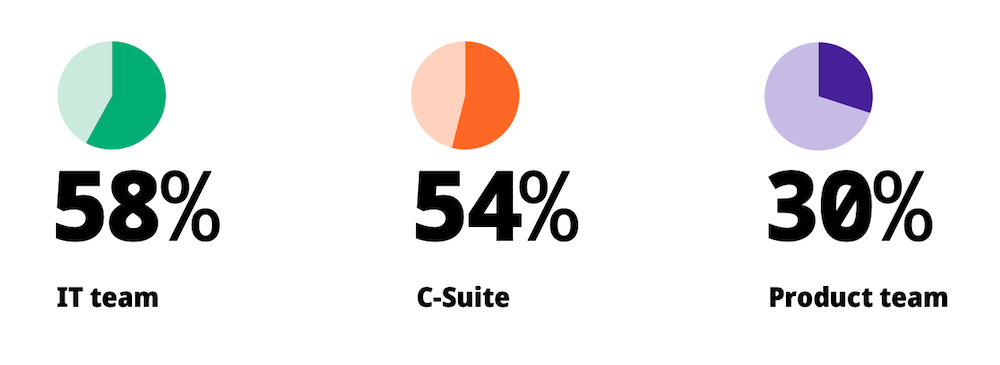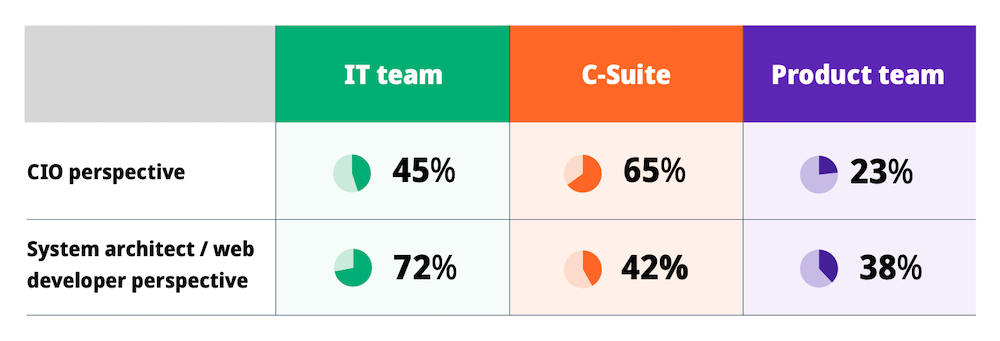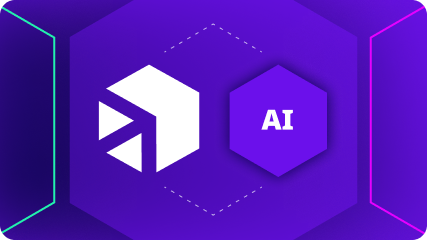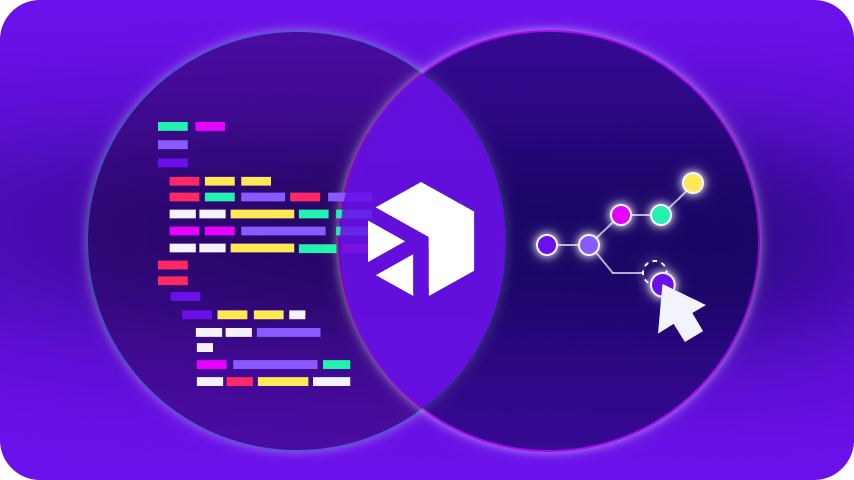October 5, 2022
Integration is a critical first step in the digital transformation process. For organizations dependent on legacy infrastructure and siloed data, it’s no longer a “nice to have” – it’s a fundamental necessity. But who really owns enterprise integration management? Who are the key integration stakeholders?
Data in the 2022 State of Enterprise Integration Report revealed some interesting clues as to who most business and technology leaders think should be the integration project manager:

It also highlighted a sharp divide between potential integration stakeholders:

So who really should be the enterprise integration manager? The answer: Everyone.
Stakeholders with Competing Priorities
Why does it matter? Aside from the matter of departmental ego, is identifying who owns integration management that important?
It really is. The enterprise integration solution your organization chooses will directly impact every level of the organization. And different players on your team may have competing priorities as they consider integration tools.
The C-Suite
Stakeholders at the executive level are responsible for the overall health and performance of the organization. Considerations for the c-suite when selecting an integration solution include cost, security, reduced downtime, and support for growth and innovation.
Once the integration project is implemented, these stakeholders expect to see outcomes that help grow the business. For example:
- Expedited entry to new markets and geographies
- Fast and agile response to market changes
- Streamlined integration of new technology, acquisitions, and other business enablers
IT & Product Teams
These stakeholders, especially members of the IT team, are often tasked with overseeing enterprise-wide systems and ensuring data and processes are available to all who need them. For these workers, top of the list is an integration solution that will offload and automate time-consuming work, empowering them to focus on creating and maintaining integrations.
Given skilled IT professionals are in such short supply, it’s no surprise that this group tends to focus more on how the solution will affect their workload:
- Ease of building and maintaining integrations
- Ability to automate tasks
- Time required to integrate
- Effects of integration on other systems
“Citizen Developers”
Although our data on who owns integration management focuses on the perspectives of CIOs and IT professionals, another group also benefits from enterprise integration: citizen developers.
These workers come from different parts of the organization and are capable of using no- and low-code, data management, and analytics tools to automate processes on their own, benefiting their teams without adding to the workload of IT and other departments.
And this segment of the employee base is rapidly growing. Gartner predicts that by 2023, the number of active citizen developers at large enterprises will be at least four times the number of professional developers.
However, this level of independence comes at a cost, with citizen developers often responsible for shadow IT within the enterprise, leading to increased security risks and organizational inefficiencies.
These frontline workers possess an innate knowledge of the workflows and processes that enterprise integration is meant to support. Tapping them to act as stakeholders in your integration initiative will serve the project and allow you to instill best practices from the onset to minimize shadow IT issues.
Involve All Integration Stakeholders to Succeed
Research for our 2022 report also reveals that the vast majority of US enterprises have not developed or implemented an integration strategy because of concerns related to budget, security, expertise, or legacy systems. Embarking on the path to integration is clearly a challenge for most companies – failure to achieve consensus on integration goals will only exacerbate these issues.
For an enterprise integration strategy to succeed, the perspectives and priorities of a wide range of stakeholders must be considered and balanced. In short: everyone owns enterprise integration management. The right solution will allow the IT team to maximize organizational efficiency, support the productivity of citizen developers, and maintain the necessary control and governance to minimize downtime and security risks.
Developing your enterprise integration strategy collaboratively can help ease the burden on system architects and developers while empowering other departments and increasing your organization’s ability to innovate and grow.
Digibee’s enterprise iPaaS is an intuitive, easy-to-use tool that simplifies and speeds up the processes of building, testing, and maintaining enterprise integrations. Our unique business model minimizes costs and timelines, allowing companies to quickly deploy integrations without the need for added expertise.
To learn more about how we can help your integration strategy succeed, download your free copy of the 2023 State of Enterprise Integration Report today.
Your data, fully integrated, in less than three weeks. Let Digibee show you how.













